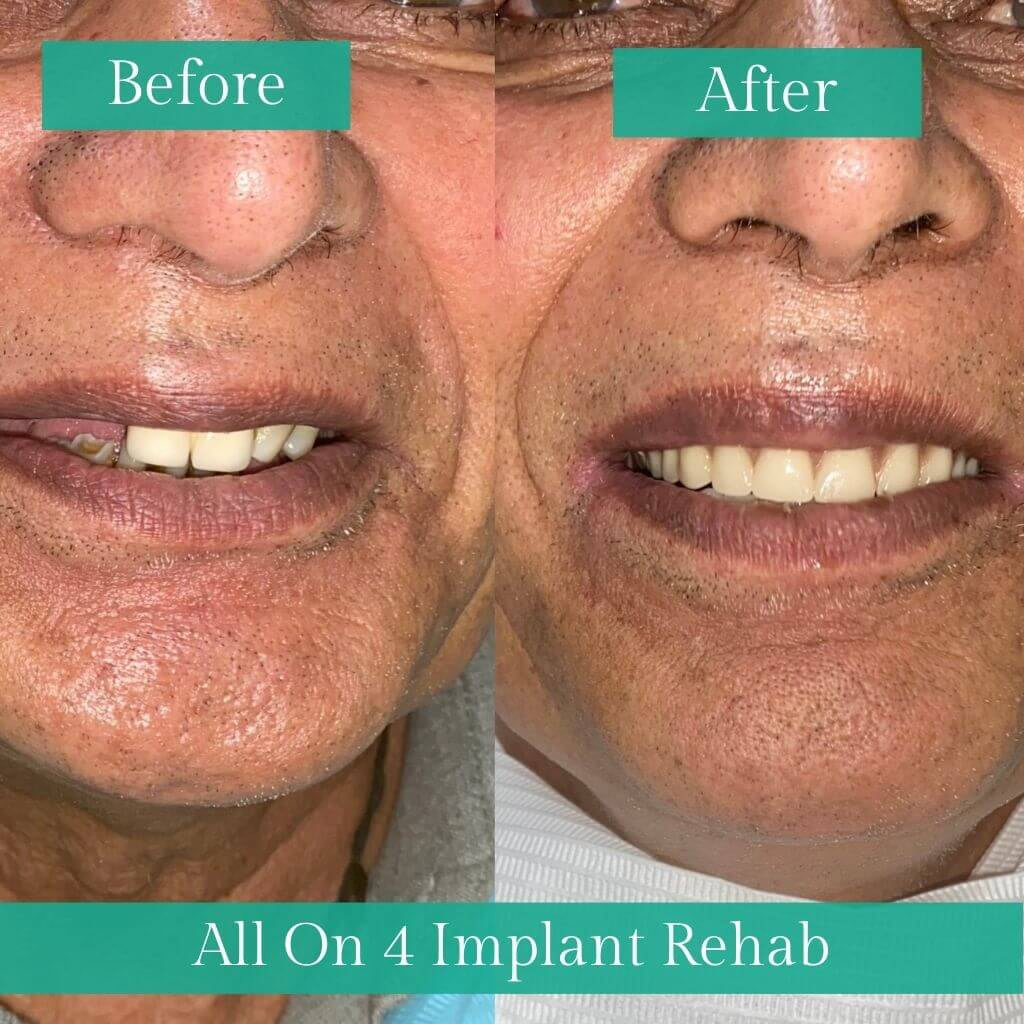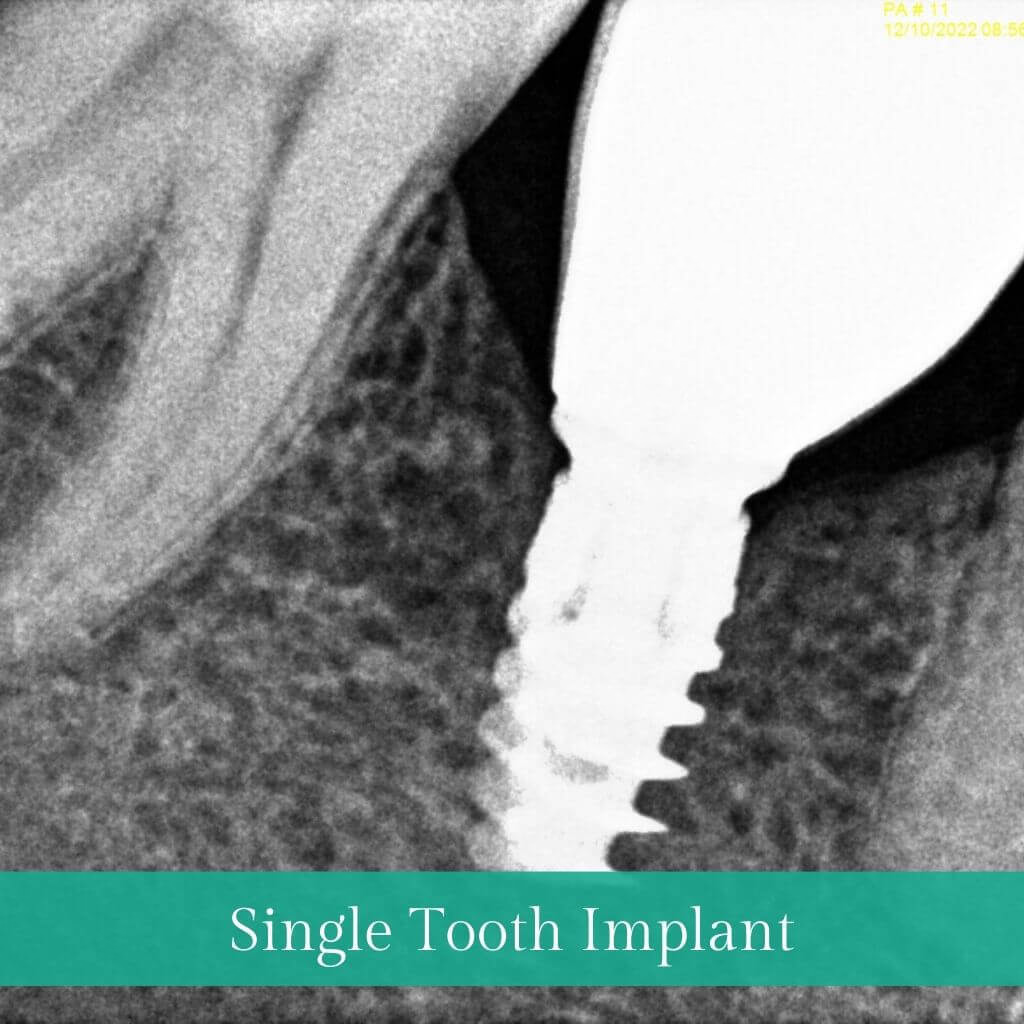How Safe Are Dental Implants?
Are you searching for a safe and reliable way to restore your smile? Look no further than dental implants. These small titanium posts are like anchors for your new teeth, providing a secure and lasting solution to your dental needs.
In this article, we'll dive into the safety of dental implants, from the pre-procedure evaluation to long-term maintenance. Get ready to find out if dental implants are the right choice for you.
Key Takeaways
- Dental implants boast an impressive success rate ranging from 95% to 98%. Risks of dental implants include infection, nerve damage, and damage to surrounding teeth or gums.
- Choosing an experienced dental surgeon and following pre- and post-procedure instructions are crucial for a safe procedure.
- Regular check-ups and proper oral hygiene are essential for the longevity of dental implants.
What Are Dental Implants?
Dental implants offer a secure and efficient solution for replacing missing teeth and rejuvenating your smile. They're titanium replacements surgically inserted into the jawbone and act as a replacement root for the missing tooth. The success rate for dental implants is high, with a 95-98% success rate.
The procedure involves a minor surgical procedure that's usually completed in one visit. In the procedure, a small titanium post is carefully inserted into the jawbone and allowed to undergo healing. Following this healing process, this titanium post replicates the root structure and a fabricated tooth or crown is affixed to the post, completing the dental implant replacement process.
Dental implants stand out as the most lifelike and durable choice for replacing missing teeth, with their success heavily reliant on both the patient's overall health and the quality of the jawbone. If you're in good health and have sufficient bone in the jaw, they're a good choice for restoring your smile.
The Safety of Dental Implants
One of the primary concerns when considering any medical or dental procedure is safety. Dental implants have a strong track record in this regard:
- Biocompatibility: Dental implants are made from materials like titanium, which are well-tolerated by the human body. Allergic reactions and rejection are rare.
- Success Rate: Dental implant procedures have a high success rate, often exceeding 95%. This reflects their reliability and effectiveness.
- Longevity: When properly cared for, dental implants can last a lifetime, offering a long-term solution for missing teeth.
Pre-Procedure Evaluation
Prior to undergoing a dental implant procedure, your dentist will conduct a thorough assessment to guarantee the procedure's safety and to ascertain the most suitable implant type and size tailored to your specific requirements for achieving the desired aesthetic results.
This evaluation includes:
- An assessment of your dental and medical history
- A thorough examination of your gums, jawbone, and oral hygiene
- A consultation with an oral surgeon to analyse the condition of the bone, soft tissue, and vital structures in the vicinity of the planned implant site.
- X-rays to evaluate the overall health of your mouth and jawbone
The evaluation will assess:
- If your bone structure is suitable for dental implants
- If there are any underlying oral health problems that should be resolved prior to the implant being placed
- If you have any habits, such as smoking, that can cause complications post-procedure
- It's important to note that any existing medical conditions should also be taken into consideration.
The Dental Implant Procedure
- Initial Consultation: The process of getting dental implants commences with an initial consultation with your dentist or oral surgeon. During this appointment, you will delve into your dental history, overall health, and any particular concerns you may have. Additionally, your dentist will perform a comprehensive examination, which may involve X-rays or 3D imaging scans to evaluate the state of your jawbone and the surrounding anatomical structures.
- Treatment Planning: After analysing the results of the examination and imaging, your dentist will develop a personalised treatment plan that targets your individual needs and situation. This plan encompasses the determination of the required number of implants, their precise placement locations, and the specific type of implant restoration (such as crowns, bridges, or dentures) that will be employed to replace your missing teeth.
- Anaesthesia and Sedation: Before the implantation procedure begins, you'll receive anaesthesia to ensure your comfort and minimise any potential discomfort. Sedation options, such as local anaesthesia, intravenous (IV) sedation, or general anaesthesia, will be discussed with you, depending on your individual needs and preferences.
- Implant Placement: The main surgical phase of the procedure involves the placement of dental implants into your jawbone. The dentist will create a minor incision in your gum tissue to reveal the underlying bone. Then, using specialised instruments, they will create a space in the bone to accommodate the implant. The implant, typically made of titanium, is precisely positioned and secured in place.
- Healing and Osseointegration: After implant placement, the healing process begins. This phase is crucial for the long-term success of the implant. Over several weeks to a few months, a process called osseointegration occurs. During osseointegration, the implant fuses with the surrounding bone, becoming a stable and integral part of your jaw. This bonding process ensures the implant's stability and strength.
- Abutment Placement: After the successful completion of osseointegration, a minor attachment known as an abutment is affixed to the implant. The abutment acts as a support structure for the ultimate restoration, which will be visible above the gumline. Impressions are taken to craft a tailor-made crown, bridge, or denture that seamlessly blends with your natural teeth.
- Restoration Placement: The final step involves attaching the customised restoration to the abutment. This restoration is meticulously crafted to perfectly match the colour, size, and shape of your original teeth, creating a flawless and visually appealing outcome. Once installed, your new tooth or teeth will blend seamlessly with your natural teeth, both in appearance and functionality.
Recovery and Aftercare
It is important to follow your dentist's instructions for recovery and aftercare after the dental implant procedure. Proper aftercare is vital for a successful outcome and to keep dental implants safe. Here is an overview of the necessary instructions:
Immediate Post-Operative Period:
- Immediate Post-Operative Period:
- Anesthesia Recovery: After the dental implant procedure, you'll be monitored as the anaesthesia wears off. You may feel some initial grogginess or numbness, but this should subside relatively quickly.
- Discomfort: It's normal to experience some discomfort, swelling, and minor bleeding around the surgical site. Your oral surgeon at Hope Dental & Esthetic Clinic, Noida, will give you guidance on how to manage these symptoms, which commonly involve taking prescribed pain medication and applying ice packs to minimise swelling.
- Diet: Initially, you'll need to stick to a soft-food diet to avoid putting excessive pressure on the surgical area. Nutrient-rich, easy-to-chew foods like Dahi, Khichdi, Idli and Vegetable Upma are ideal choices.
- The Importance of Rest: Adequate rest is crucial during the initial recovery period. It's recommended to take it easy for the first few days after the surgery to allow your body to heal. Avoid vigorous activities that could raise blood pressure and disrupt the healing process.
- Oral Hygiene During Recovery: During the healing phase, your dentist will give you thorough guidance on how to maintain oral hygiene. Typically, this involves gentle rinsing with warm salt water to keep the surgical site clean.
- Avoid using a toothbrush or floss near the implant site until your dentist gives the green light. Instead, use a prescribed antimicrobial mouthwash as directed.
- Managing Swelling and Bruising: After undergoing dental implant surgery, it is common to experience swelling and bruising. To minimise swelling, continue applying ice packs for the first 24 to 48 hours, taking care not to place ice directly on the skin.
If you experience bruising, it will gradually fade over time. Be patient, as this is a normal part of the healing process.
Long-Term Safety and Maintenance
You can ensure the long-term safety and maintenance of your dental implants by following your dentist's instructions and attending regular check-ups and cleanings. Ensuring proper oral hygiene through regular brushing and flossing is vital in order to prolong the lifespan of implants and prevent gum disease and tooth decay.
Regular dental examinations and professional cleanings are essential for preserving excellent oral health in addition to daily oral hygiene practices. This can help identify any potential problems and remove any plaque or tartar buildup. Additionally, it is important to avoid habits such as smoking and excessive force on the implants, as these can increase the risk of complications and implant failure.
Compared to other options for tooth replacement, such as bridges and dentures, dental implants are the safest choice. They're anchored directly into your jawbone, eliminating the risk of slipping or breaking that can occur with bridges and dentures. Moreover, dental implants have the added benefit of aiding in the prevention of bone loss, a potential complication often associated with alternative tooth replacement methods.
Common Myths and Misconceptions
With adequate care and upkeep, dental implants can function as a reliable and effective option for replacing missing teeth. There are several common myths and misconceptions surrounding them, but these can be debunked to help ensure peace of mind.
- Myth #1 Dental Implants Are Painful: Many believe the implant procedure is extremely painful, but with local anaesthesia and modern techniques, discomfort is minimal.
- Myth #2 Dental Implants Are Only for the Elderly: Implants offer advantages to individuals of all age groups, not exclusively seniors, as they help to rejuvenate both oral health and aesthetic appeal.
- Myth #3 Dental Implants Are Too Expensive: While there is an initial financial commitment, implants demonstrate their cost-effectiveness over the long run due to their durability and low maintenance needs.
- Myth #4 Implants Cause Health Issues: Dental implants are safe and biocompatible, with minimal risk of health complications when placed by a skilled professional.
- Myth #5 Dental Implants Look Fake: Implants are designed to mimic natural teeth, providing a realistic and aesthetically pleasing appearance.
FAQ’s
Conclusion
Dental implants can be a safe, secure, and successful solution to replacing missing teeth. With proper pre-procedure evaluation, a carefully executed procedure, and diligent post-treatment aftercare, you can be confident that your dental implants will provide long-term stability and satisfaction.
So, don't be scared, don't be stressed - just be sure to research and rest assured that dental implants at Hope Dental & Esthetic Clinic, Noida, are a safe and reliable choice.




